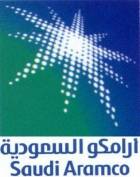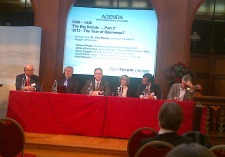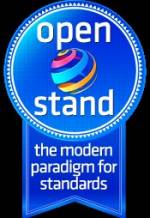Have you discovered The Alexandria Project?
 Governments certainly have more than enough to concern themselves with these days – financial crises, natural disasters and terrorism, to name just a few. Given that’s the case, it’s surprising that so many are finding the time to worry about what kind of standards the products and services they purchase comply with. But they are.
Governments certainly have more than enough to concern themselves with these days – financial crises, natural disasters and terrorism, to name just a few. Given that’s the case, it’s surprising that so many are finding the time to worry about what kind of standards the products and services they purchase comply with. But they are.
That’s the case in the EU, where the final terms of version 2.0 of the European Interoperability Framework (EIF) were the subject of heated debate, resulting in a watered down definition of what should be regarded as acceptable standards for use in enabling communications between EU member nations. It’s also the case within those EU member states that are considering adopting definitions similar to the original formulation that appeared in the original, 2004 version of the EIF.
Have you discovered The Alexandria Project?
 According to a press release issued today by the Portuguese Open Source Business Association (reproduced in full at the end of this blog entry), the government of Portugal has decided to approve a single editable, XML-based document format for use by government, and in public procurement. And that format is not OOXML.
According to a press release issued today by the Portuguese Open Source Business Association (reproduced in full at the end of this blog entry), the government of Portugal has decided to approve a single editable, XML-based document format for use by government, and in public procurement. And that format is not OOXML.
Instead, the Portuguese government has opted for ODF, the OpenDocument Format, as well as PDF and a number of other formats and protocols, including XML, XMPP, IMAP, SMTP, CALDAV and LDAP. The announcement is in furtherance of a law passed by the Portuguese Parliament on June 21 of last year requiring compliance with open standards (as defined in the same legislation) in the procurement of government information systems and when exchanging documents at citizen-facing government Web sites (an unofficial English translation is here).
Have you discovered The Alexandria Project?
 Well, it’s an interesting world we live in, isn’t it? I say that because one of the lines I came up with to promote my cybersecurity thriller, The Alexandria Project was, “It’s only fictional in the sense that it hasn’t happened yet.” There wasn’t much question in my mind that this statement would prove true, but I hadn’t expected that it would happen so quickly, and even so precisely. In the latest example, it almost makes you wonder whether those involved have read my book.
Well, it’s an interesting world we live in, isn’t it? I say that because one of the lines I came up with to promote my cybersecurity thriller, The Alexandria Project was, “It’s only fictional in the sense that it hasn’t happened yet.” There wasn’t much question in my mind that this statement would prove true, but I hadn’t expected that it would happen so quickly, and even so precisely. In the latest example, it almost makes you wonder whether those involved have read my book.
Have you discovered The Alexandria Project?
 In case you haven’t thought about it lately, it’s a fair bet that everything in your life today depends to some greater or lesser extent (usually the former) on the Internet and the Web. And in case you’ve never thought about it at all, what makes those vital services possible has less to do with servers and fiber optics than it does with protocols and other standards. Take that reality a step further, and it becomes obvious that that the processes by which these essential enablers of our interconnected world are created is pretty important.
In case you haven’t thought about it lately, it’s a fair bet that everything in your life today depends to some greater or lesser extent (usually the former) on the Internet and the Web. And in case you’ve never thought about it at all, what makes those vital services possible has less to do with servers and fiber optics than it does with protocols and other standards. Take that reality a step further, and it becomes obvious that that the processes by which these essential enablers of our interconnected world are created is pretty important.
Further to that thought, a few weeks ago I was intrigued to read that five of the standard setting organizations (SSO) most responsible for the Internet and the Web had united to launch a new initiative called OpenStand. Intrigued, because while the press release answered the “who, what, when and where” aspects of the story, the “why” was a bit less fully fleshed out. I did some investigating on that front, and wrote about what I learned here.
Have you discovered The Alexandria Project?
 In an otherwise useful essay on the convergence of open standards and open source software development efforts, Adobe's Dave McAllister makes a statement that's worth challenging, since it reiterates a common misconception. In the opening of his essay, Dave states:
In an otherwise useful essay on the convergence of open standards and open source software development efforts, Adobe's Dave McAllister makes a statement that's worth challenging, since it reiterates a common misconception. In the opening of his essay, Dave states:
Standards are designed to stabilize a technology or interface, package or connection. Open source is driven by continual development. Standards tend to update and publish on a schedule measured in years, while open source updates and publishes in sometimes days. Standards drive the status quo. Open source (often) drives innovation.
The first part of that statement is crucially accurate: the value of a standard derives entirely from the industry agreeing to freeze some element of technology or interface. But the later statement that "Standards drive the status quo" at the expense of innovation is misleading at best.
Have you discovered The Alexandria Project?
 Last week I took something of a trip back through time. The transition began somewhere over the dark Atlantic, on my way to Brussels via Heathrow, when the person sitting next to me struck up a conversation. Improbably, I found myself discussing ODF – the OpenDocument Format – with a former Sun engineer who had followed the ODF–OOXML contest with great interest back in 2005 - 2007. I was sorry to tell him, and he was sorry to hear, that things had not gone so well in the years that followed, and that many of the bright hopes of those that had supported ODF remained to be realized.
Last week I took something of a trip back through time. The transition began somewhere over the dark Atlantic, on my way to Brussels via Heathrow, when the person sitting next to me struck up a conversation. Improbably, I found myself discussing ODF – the OpenDocument Format – with a former Sun engineer who had followed the ODF–OOXML contest with great interest back in 2005 - 2007. I was sorry to tell him, and he was sorry to hear, that things had not gone so well in the years that followed, and that many of the bright hopes of those that had supported ODF remained to be realized.
The conversation set me thinking about how much of the energy that had surrounded open standards back then has faded from view in the U.S.
Have you discovered The Alexandria Project?
 The big news in the standards arena yesterday was a joint announcement by five of the standards setting organizations (SSOs) that have been most essential to the creation of the Internet and the Web: IEEE, World Wide Web Consortium (W3C), Internet Architecture Board (IAB), Internet Engineering Task Force (IETF), and Internet Society (the last three being closely affiliated entities).
The big news in the standards arena yesterday was a joint announcement by five of the standards setting organizations (SSOs) that have been most essential to the creation of the Internet and the Web: IEEE, World Wide Web Consortium (W3C), Internet Architecture Board (IAB), Internet Engineering Task Force (IETF), and Internet Society (the last three being closely affiliated entities).
Joint announcements by SSOs are rare, and the subject matter of this announcement was more so: each organization was joining in the endorsement of a set of five principles that they assert support a “new paradigm for standards” development.
"Alice laughed: "There's no use trying," she said; "one can't believe impossible things."
"I daresay you haven't had much practice," said the Queen. "When I was younger, I always did it for half an hour a day. Why, sometimes I've believed as many as six impossible things before breakfast."
Alice in Wonderland.
Have you discovered The Alexandria Project?
 Now that the jury has given Apple almost everything it asked for in its infringement suit against Samsung, what should we expect to happen next? I think it's a given that Samsung will appeal. Given the damages awarded and the obvious determination of Apple to defend its patents, Samsung has little choice but to press forward wherever it can in court.
Now that the jury has given Apple almost everything it asked for in its infringement suit against Samsung, what should we expect to happen next? I think it's a given that Samsung will appeal. Given the damages awarded and the obvious determination of Apple to defend its patents, Samsung has little choice but to press forward wherever it can in court.
This doesn't necessarily mean that it's ultimate goal is to prevail through litigation, because it will constantly be running into existing and new Apple patents for so long as they remain competitors in the marketplace. Ultimately, what should make the best sense for Samsung is to negotiate the most comprehensive patent cross license with Apple that it can, and maintaining a full court press throughout the world's legal venues is the best way to ensure that it can get the best terms possible in such a license.
Have you discovered The Alexandria Project?
 Yesterday, Microsoft made an unobtrusive announcement that brings a degree of closure to a seven year long epic battle between some of the largest technology companies in the world. The same saga pitted open source advocates against proprietary vendors, and for the first time brought the importance of technical standards to the attention of millions of people around the world, and at the center of the action were Microsoft and IBM, the latter supported by Google and Oracle, among other allies.
Yesterday, Microsoft made an unobtrusive announcement that brings a degree of closure to a seven year long epic battle between some of the largest technology companies in the world. The same saga pitted open source advocates against proprietary vendors, and for the first time brought the importance of technical standards to the attention of millions of people around the world, and at the center of the action were Microsoft and IBM, the latter supported by Google and Oracle, among other allies.
The standards in question described the format specifications that can allow documents created by one proprietary software product to be opened, edited and saved in another.
 Governments certainly have more than enough to concern themselves with these days – financial crises, natural disasters and terrorism, to name just a few. Given that’s the case, it’s surprising that so many are finding the time to worry about what kind of standards the products and services they purchase comply with. But they are.
Governments certainly have more than enough to concern themselves with these days – financial crises, natural disasters and terrorism, to name just a few. Given that’s the case, it’s surprising that so many are finding the time to worry about what kind of standards the products and services they purchase comply with. But they are. According to a press release issued today by the Portuguese Open Source Business Association (reproduced in full at the end of this blog entry), the government of Portugal has decided to approve a single editable, XML-based document format for use by government, and in public procurement. And that format is not OOXML.
According to a press release issued today by the Portuguese Open Source Business Association (reproduced in full at the end of this blog entry), the government of Portugal has decided to approve a single editable, XML-based document format for use by government, and in public procurement. And that format is not OOXML. Well, it’s an interesting world we live in, isn’t it? I say that because one of the lines I came up with to promote my cybersecurity thriller, The Alexandria Project was, “It’s only fictional in the sense that it hasn’t happened yet.” There wasn’t much question in my mind that this statement would prove true, but I hadn’t expected that it would happen so quickly, and even so precisely. In the latest example, it almost makes you wonder whether those involved have read my book.
Well, it’s an interesting world we live in, isn’t it? I say that because one of the lines I came up with to promote my cybersecurity thriller, The Alexandria Project was, “It’s only fictional in the sense that it hasn’t happened yet.” There wasn’t much question in my mind that this statement would prove true, but I hadn’t expected that it would happen so quickly, and even so precisely. In the latest example, it almost makes you wonder whether those involved have read my book. In case you haven’t thought about it lately, it’s a fair bet that everything in your life today depends to some greater or lesser extent (usually the former) on the Internet and the Web. And in case you’ve never thought about it at all, what makes those vital services possible has less to do with servers and fiber optics than it does with protocols and other standards. Take that reality a step further, and it becomes obvious that that the processes by which these essential enablers of our interconnected world are created is pretty important.
In case you haven’t thought about it lately, it’s a fair bet that everything in your life today depends to some greater or lesser extent (usually the former) on the Internet and the Web. And in case you’ve never thought about it at all, what makes those vital services possible has less to do with servers and fiber optics than it does with protocols and other standards. Take that reality a step further, and it becomes obvious that that the processes by which these essential enablers of our interconnected world are created is pretty important. In an otherwise useful essay on the convergence of open standards and open source software development efforts, Adobe's Dave McAllister makes a statement that's worth challenging, since it reiterates a common misconception. In the opening of his essay, Dave states:
In an otherwise useful essay on the convergence of open standards and open source software development efforts, Adobe's Dave McAllister makes a statement that's worth challenging, since it reiterates a common misconception. In the opening of his essay, Dave states: Last week I took something of a trip back through time. The transition began somewhere over the dark Atlantic, on my way to Brussels via Heathrow, when the person sitting next to me struck up a conversation. Improbably, I found myself discussing ODF – the OpenDocument Format – with a former Sun engineer who had followed the ODF–OOXML contest with great interest back in 2005 - 2007. I was sorry to tell him, and he was sorry to hear, that things had not gone so well in the years that followed, and that many of the bright hopes of those that had supported ODF remained to be realized.
Last week I took something of a trip back through time. The transition began somewhere over the dark Atlantic, on my way to Brussels via Heathrow, when the person sitting next to me struck up a conversation. Improbably, I found myself discussing ODF – the OpenDocument Format – with a former Sun engineer who had followed the ODF–OOXML contest with great interest back in 2005 - 2007. I was sorry to tell him, and he was sorry to hear, that things had not gone so well in the years that followed, and that many of the bright hopes of those that had supported ODF remained to be realized.
 The big news in the standards arena yesterday was a
The big news in the standards arena yesterday was a  Now that the jury has given Apple almost everything it asked for in its infringement suit against Samsung, what should we expect to happen next? I think it's a given that Samsung will appeal. Given the damages awarded and the obvious determination of Apple to defend its patents, Samsung has little choice but to press forward wherever it can in court.
Now that the jury has given Apple almost everything it asked for in its infringement suit against Samsung, what should we expect to happen next? I think it's a given that Samsung will appeal. Given the damages awarded and the obvious determination of Apple to defend its patents, Samsung has little choice but to press forward wherever it can in court.  Yesterday, Microsoft made an unobtrusive announcement that brings a degree of closure to a seven year long epic battle between some of the largest technology companies in the world. The same saga pitted open source advocates against proprietary vendors, and for the first time brought the importance of technical standards to the attention of millions of people around the world, and at the center of the action were Microsoft and IBM, the latter supported by Google and Oracle, among other allies.
Yesterday, Microsoft made an unobtrusive announcement that brings a degree of closure to a seven year long epic battle between some of the largest technology companies in the world. The same saga pitted open source advocates against proprietary vendors, and for the first time brought the importance of technical standards to the attention of millions of people around the world, and at the center of the action were Microsoft and IBM, the latter supported by Google and Oracle, among other allies.